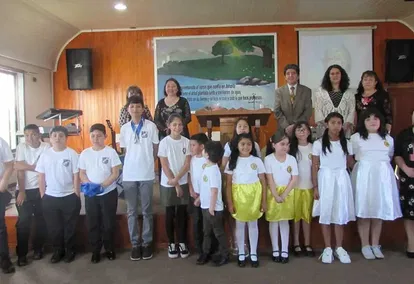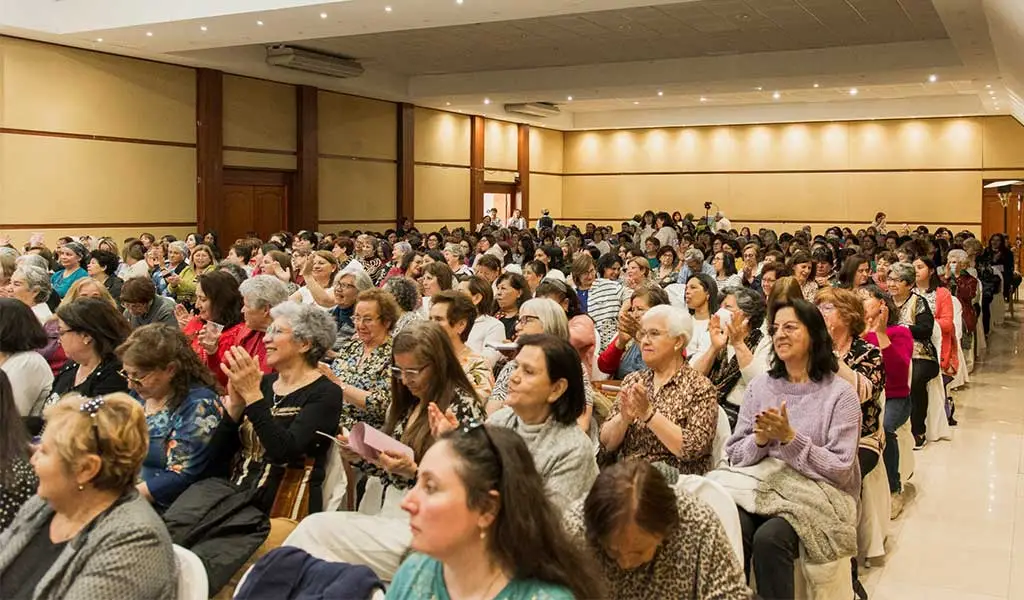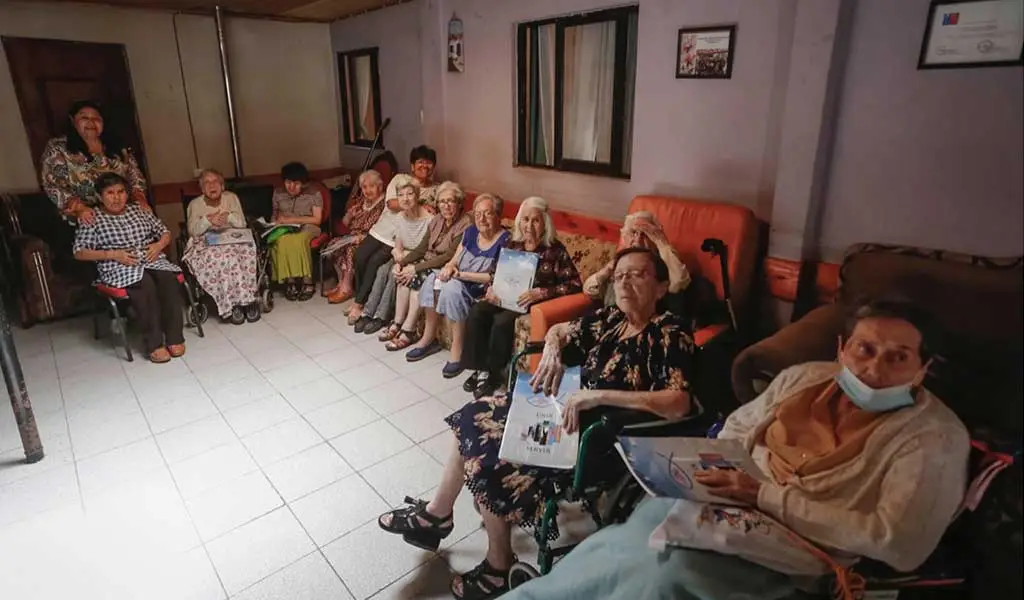Chile WMU: More than 100 Years of Service
August 15, 2024

Inspired by the Women’s Union of Rio de Janeiro and led by a young Chilean pastor, Juan Domingo Álvarez, the first women’s union in Chile was organized on June 14, 1914, in the small town of Vilcún.
With the help of several Baptist missionaries and their wives as well as two single missionaries, Pastor Álvarez promoted the organization of new women’s unions in the cities of Concepción, Temuco, and Santiago.
Women from several churches organized a national committee at the National Convention Assembly in the city of Valdivia. On January 2, 1923, the organization known today as Unión Femenil Bautista Misionera de Chile (Chile WMU) was organized.
Chile WMU Organization
Led by Noemí Zapata Marín, who has been married to her pastor husband for 26 years, Chile WMU today is divided into 15 regions with regional presidents, some with 4 or 5 groups and other larger regions with nearly 50 participating groups. Like the national executive board, each of the regional organizations has a board of directors to support the president and coordinate the local work. “They all [strive] to continue growing integrally in their service to the Lord,” Noemí shared.
She went on to say, “The vision of [Chile WMU] is to collaborate with the church in the extension of the kingdom of God. Our mission is to strengthen the spiritual growth of each Baptist woman so that she can practice an evangelistic missionary lifestyle, collaborate in the missionary cause of the entire world, involve new generations in an evangelistic missionary lifestyle, and participate in social actions in the community.”

Developing Women Who Are on Mission
“We have just finished a five-year period [under the motto] Impacting the New Generations,” said Noemí. “We chose to study a book each year that would instruct us on that topic, in addition to developing different activities aiming at the same objective…. Our sisters are trained through Plan Obreras, which is a tool that instructs them to be well prepared to evangelize, know the Word of God, and be part of an active work of service to their church and their community.”
During the three years leading up to and preparing for Chile WMU’s centennial celebration in 2023, Noemí explained, “We began to encourage each region to recognize its leaders to thank them for their service and example of life. This has been a great blessing for these faithful sisters, as well as motivating for new generations of women.”
Leading by Honoring
“This year, I have traveled [to] almost all the regions of the country recognizing and honoring those women who may not have held national or regional positions but who, with their perseverance and fidelity, have marked the lives of their sisters in local churches,” added Noemí. “These recognitions have been a source of great emotion and joy for sisters who have sometimes been a blessing silently and anonymously and who didn’t expect to be honored by [national Chile WMU].”
The COVID-19 pandemic affected participation by many women involved in Chile WMU. Since then, leadership has worked to reestablish the organization in churches across the country.

Looking Forward
“Thanks to the Lord, this year we were able to achieve the goal of having women’s unions in the 15 regions of our country,” said Noemí. “In some regions after the pandemic, it has been difficult for all women’s unions to be reactivated; however, new ones are starting, so during … 2024, we will work hard on training about what [WMU] is and what it does.”
“Furthermore,” she continued, “we are happy to see that although many of our women’s unions have [elderly] women … in recent years we have seen young women … joining our organization who wish to be an active part of our work, even becoming part of their local and regional directories. This allows us to envision our work in the long term.
“In the coming years, we [will] continue responding to the current needs of women in every area of their lives through training and teaching, as well as … [attending to] the care of children and adolescents through our [missions groups]. We strongly feel God’s call to resume this work throughout the country, seeking to serve [all ages].”
As the current president, Noemí said, “[Chile WMU] is for me a place of service and blessing. It’s the space in which I can … help other sisters in their growth not only spiritually but also integrally as women.”

Prayer Support
Noemí asked “for your support in prayer for all Baptist women in Chile. We still have a lot of work regarding the way in which we must reach and be supportive of the new generations of our churches, who many times, because of their work, cannot be an active part of our programs but who equally need our help. We must be wise to find those spaces of rapprochement and mutual cooperation.”
Virginia Kreimeyer is the author of three books and has contributed to several devotional and academic books. However, without the help of International Missionary Board missionary Iracema Kunkel, she would not have been able to write this story. Thank you, Cema.